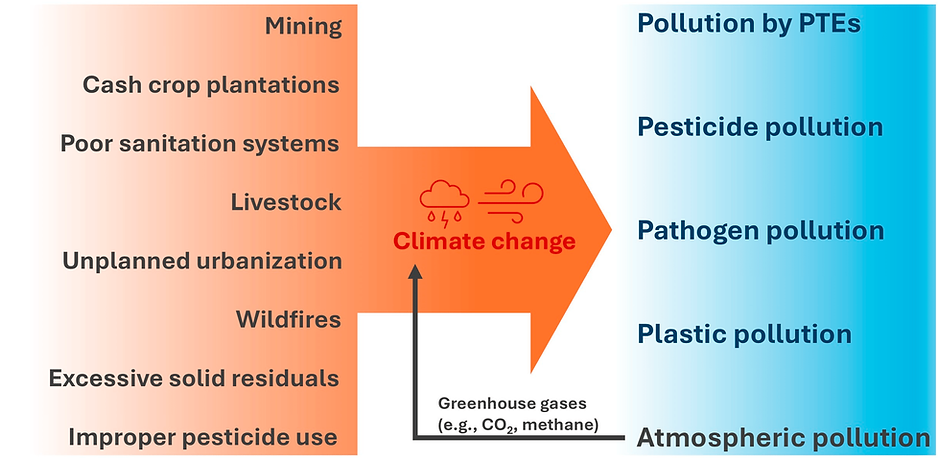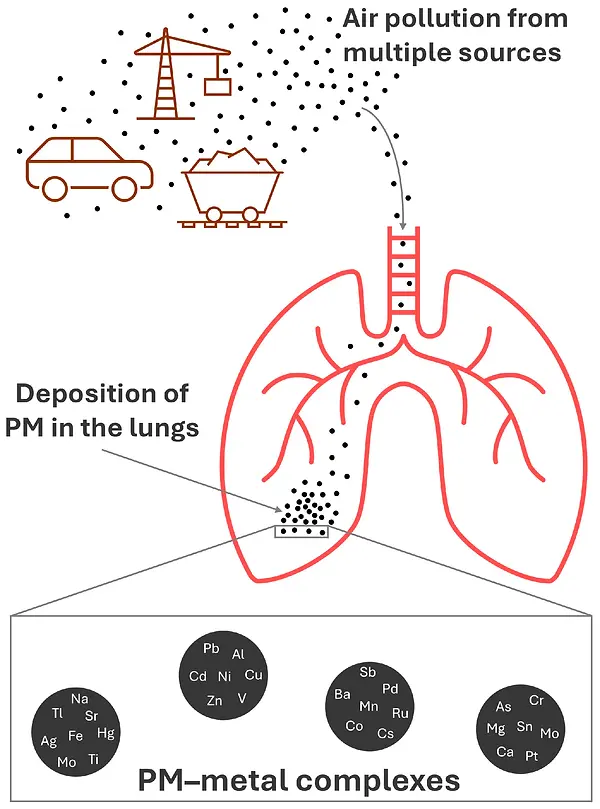Metals influence genes, cells, tissues, host-pathogen interactions, and ecosystems. Socio-environmental issues linked to the Anthropocene disrupt the influence of metals on biological systems, affecting the health of multiple species.
Of the ten most important global chemical pollutants cited by the World Health Organization, four are metals: arsenic (As), cadmium (Cd), lead (Pb), and mercury (Hg).
Anthropogenic actions such as mining, agricultural fertilizer use, and electronic waste production pollute the environment with various toxic metals, such as Pb and Cd. Climate change and extreme weather events accelerate the spread of metal pollution and the redistribution of metals in ecosystems. These problems are becoming increasingly relevant with the increase in mineral exploration activities for the energy transition and the accelerated use of Rare Earth Elements. On the other hand, dietary problems can cause deficiencies in metals, such as iron (Fe) and zinc (Zn), which are essential for the proper functioning of organisms.
In a nutshell: Exposure to toxic metals and deficiencies in essential metals can impact the health of humans, animals, and ecosystems.

Certain metals exhibit toxicity only at elevated exposure levels. Consequently, they are often classified as PTEs, an acronym for "potentially toxic elements". Source: Ellwanger et al. Int. J. Environ. Res. Public Health, 2025. Access here.

Rio Grande do Sul 2024 flood. A: Central region of Porto Alegre City. B,C: The Guaíba Lake shore. D: Vegetation on the Marinha Park shore (Porto Alegre) severely impacted after being submerged for several days. Photo credits: Alexandre Copês. Extreme weather events, such as the mega flood that struck Rio Grande do Sul in 2024, lead to the remobilization and redistribution of metals across different ecosystems. Source: Ellwanger et al. Int. J. Environ. Res. Public Health, 2025. Access here.

Parasitic infections can cause significant deficiencies of essential metals, particularly iron (Fe). This is a major public health issue in many countries. Source: Ellwanger et al. Parasitology Research, 2022. Access here.
